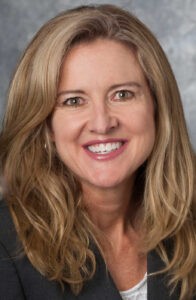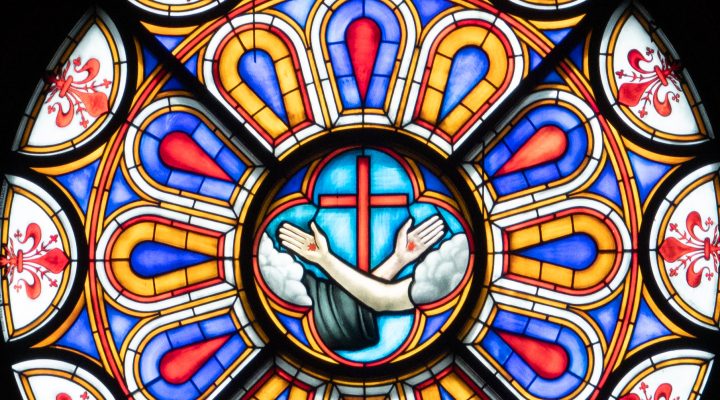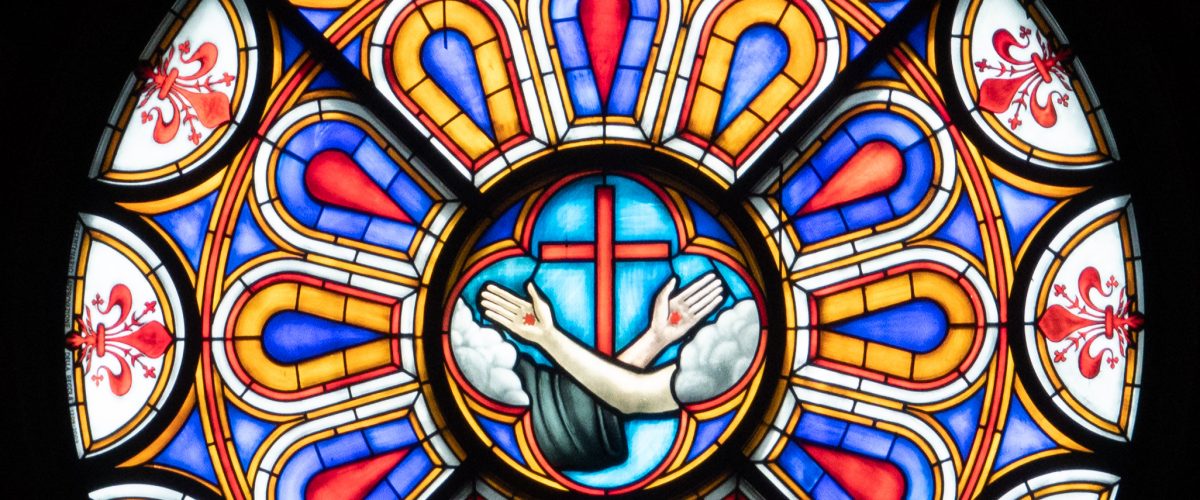When Baptist scholar Jaime Clark-Soles agreed to participate in a 2017 Johns Hopkins University study on the effects of psychedelics on spirituality, her friends and colleagues didn’t have the same vision she did.
“I got, ‘Don’t do it,’ ‘It’s terrible,’ ‘You’re going to have flashbacks,’ ‘You’re going to die.’ Most of the responses were very overreactive from both academic colleagues and pastoral friends,” said Clark-Soles, professor of New Testament and director of the Baptist House of Studies at Southern Methodist University’s Perkins School of Theology.
But she pushed through the dire warnings to participate in two psilocybin sessions along with 23 other participants consisting of Christian, Buddhist, Jewish and Muslim leaders. And the experience turned out to be anything but terrible.

Jamie Clarke-Soles
“Like most of the participants in the study, I’m certainly one of those who considers it among my top five experiences. The reason it can’t be in my top slot is that I’ve given birth twice,” Clark-Soles said during a recent webinar on “Psychedelics and Soul Care” hosted by the Cleveland Psychedelic Group.
“It wasn’t what I expected, but it turns out that it was exactly what I needed on a variety of different levels across a range of topics and experiences. I encountered God in deeply profound direct ways.”
Results of the study on faith and psilocybin — the active ingredient in psychedelic mushrooms — is due for publication this year, and at a time of rapidly rising interest in the use of hallucinogens in the treatment of eating disorders, depression and depression. The U.S. Food and Drug Administration is considering approval of the synthetic hallucinogen MDMA for treatment of veterans and in December and President Biden signed a defense spending bill that includes funds for psylocibin and MDMA clinical trials on military personnel suffering from traumatic brain injuries and PTSD.
At the Johns Hopkins University Center for Psychedelic and Consciousness Research, research focuses on the advancement of the scientific understanding of the effect of psychedelics on enhancing well-being and on treating mental health disorders. The study involving spiritual leaders was conducted because religious imagery was consistently emerging from subjects in other studies.
For Clark-Soles, the effects of her supervised psychedelic sessions proved deeply emotional and spiritual, with feelings ranging from joy, laughter and playfulness to awe, reverence, majesty and gratitude. “They were all healing for the soul,” she said.
In some moments she beheld the faces of her children and in another had an encounter with an academic and ministerial mentor whom she had not seen or spoken with in some time. “When I returned to my hotel that night, I looked at my messages and I discovered that he had died while I was in my session.”
And there were some challenging lessons, as well. “I learned, and am learning, more about forgiveness as an embodied reality rather than just a mental concept that I subscribed to. I understood what sabbath rest actually means in embodied form, and, maybe not surprisingly for a Bible scholar, I experienced and understood my tradition and Scriptures in new ways.”
From those experiences came a slew of professional and pastoral goals, including promoting “soul care” by bringing the scientific and religious for healing.
“We have inherited the habit of imagining a separate bucket for the mind and body, for the physical and the spiritual,” she said. “But we are not minds or spirits that have bodies. Bodies are spiritual and spirits are embodied. At every turn, we are embodied people interacting with other embodied people.”
“Medicine needs to take spiritual experiences seriously, and religions need to take bodily experiences seriously.”
Psychedelics can help overcome the false dichotomy of soul and body by facilitating meaning making and integrating the transcendent and sublime into the healing journey, she advised. “Medicine needs to take spiritual experiences seriously, and religions need to take bodily experiences seriously. They’re all of a piece. The body is a valid source of knowledge about the divine.”
Clark-Soles said she will work to promote intelligent and meaningful ways of demonstrating how psychedelics and Christianity intersect. “I want to help create resources and opportunities for other Christians who have already had psychedelic experiences and want to integrate those into their faith life.”
The effort includes writing a book from her experience and subsequent research titled The Agony, the Ecstasy, and the Ordinary: Experiencing God in the New Testament, and a journal article on the intersection of the divine and science.
Clark-Soles said her psilocybin sessions inspired a deeper appreciation and understanding for the role of out-of-body experiences included in the Bible. As an example, she cited Paul’s description of his thorn and visions in Second Corinthians.
“He’s telling us that he regularly experienced visions and revelations where he encountered the divine that involved ecstatic states, which he calls being caught up to the third heaven, being caught up into paradise. This sounds amazing and fantastic — who wouldn’t want it? He says, ‘I was caught up into paradise. I heard things that are not to be told that no mortal is permitted to repeat.’”
And in keeping with the reality of psychedelic therapies, Paul’s experience was as painful at times as it was ecstatic, she said. “Notice three times he has some kind of physical thorn in the flesh. He asks God three times to remove this thorn in the flesh, but it was not to be. What God actually says to Paul is this: ‘My grace is sufficient for you, for power is made perfect in weakness.’”
Use of psychedelics in soul care is about healing, not curing spiritual and emotional wounds, she advised.
But attention must also be given to the history and ongoing exclusion and mistreatment of Black, indigenous and people of color in therapeutic settings including the “patently white” spaces of psychedelic research, she added.
“The soul care of those we work with requires cultural competence, cultural humility, commitment to DEI (diversity, equity, inclusion), as well as reciprocity with respect to the indigenous healers and communities who have introduced and shepherded these medicines and healing processes for thousands and thousands of years.”
It’s also important to communicate that the use of psychedelics in soul care is about healing, not curing spiritual and emotional wounds, she advised. “I would point out that Jesus is often referred to in the Christian tradition as the Great Physician since he declared that he came to heal the sick. He did cure, but his goal and focus was not simply cure, but healing reconciliation.”
There will be push-back against hallucinogenic soul care from clergy concerned that its effectiveness could lure people away from church, Clark-Soles acknowledged.
“If they can just go encounter God in a pill, why would they go to church? There’s a little concern sometimes from religious authorities about gatekeeping and feeling a little bit threatened of their own role of dispensing God and divine encounters.”
Related articles:
The Psychedelic Renaissance needs a Christian counterculture | Analysis by Kaleb Graves
Is your church ready for the spiritual revolution of LSD, DMT and magic mushrooms? | Analysis by Kaleb Graves
What an experiment with psychedelics 60 years ago might teach us about faith today | Analysis by Kaleb Graves
‘God’s plant’ has cured kids, now the new frontier is psychedelics


